Introducing Na’amod
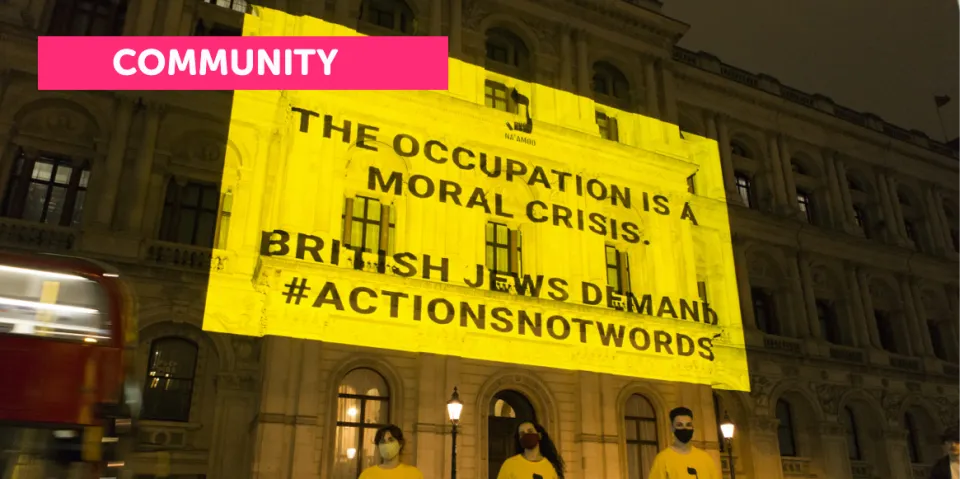
by Jeremy Green | Author and writer
June 2025
Who is Na'amod?
Na'amod is an organisation of British Jews who are opposed to the occupation and apartheid which is taking place right now and which has been happening for decades in the West Bank and across all the territories of the Palestinian people.
Na’amod was formed in 2018 specifically as a group to influence British policy and the British Jewish community, which in the past, has been seen as traditionally pro Zionist and supportive of Israel's actions.
Na'amod exists to bring about change within the Jewish community in Britain.
Colin Levine from Na’amod speaks at Holocaust Memorial Day 2025 in Stroud
When did Na’amod start up in Gloucestershire?
In Gloucestershire, Na’amod started up much more recently, triggered by the awful events of October 2023. The Jewish people that I know and have been in touch with around the Stroud area started talking to each other about this, particularly through our shared participation in the weekly vigils that have taken place on Friday evenings in Stroud.
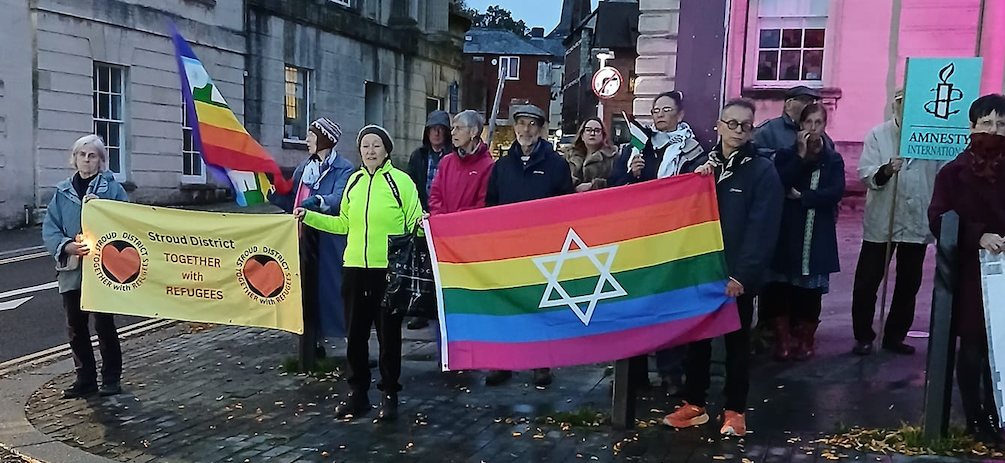
As we talked, we came to the shared view that our voices together would would be far more significant than us speaking as individuals.
We feel that it is important for us to be able to embolden our non-Jewish friends locally to understand that — Yes, it's okay to criticise Israel and No — that isn't antisemitic.
Understandably, a lot of people have inhibitions about their criticism of Israel, because for so many years, it has been equated with anti-Zionism — there is this idea that anti-Zionism is the same as antisemitism, that if you criticise Israel, you're somehow against Jewish people.
It's a very pervasive idea, and I think if we can help people to overcome that concern, it give them courage to speak out, and it can strengthen alliances with other people locally who are campaigning for justice for Palestine.
Why did you join and what does it mean to you?
Well, it's a long old story, really — I grew up in very traditional, mainstream, Orthodox Jewish family, in a Jewish community in Britain, where we were taught to support Israel.
Over time, as I became more aware of what was happening in the world and human rights and the politics that I realised that I had been lied to as a child, that I had been indoctrinated into what I'm afraid I find to be a rather hateful ideology, the idea that the Jewish people have a right to their own state at any cost, and regardless of the harm that that inflicts on other people and that I find really, really hateful.
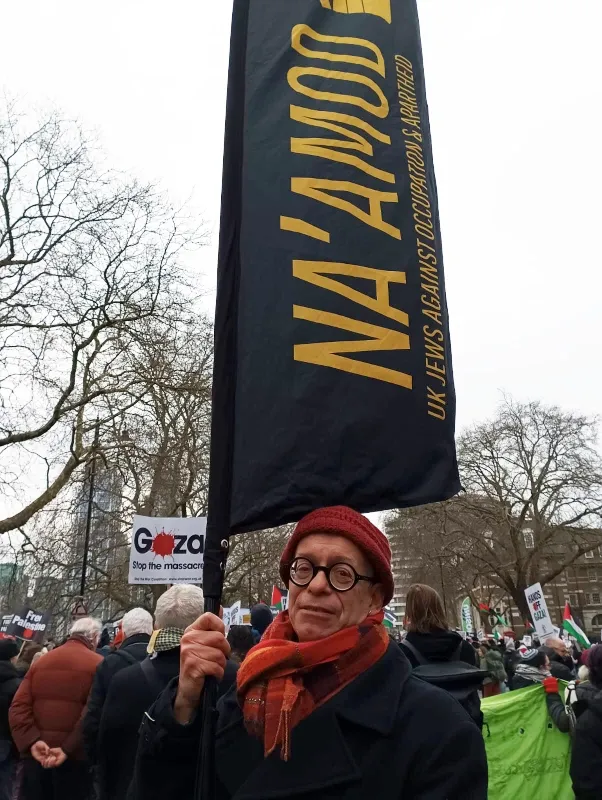
I've felt that it's important for me to identify as a Jew who feels this way, rather than simply as a person who feels this way, because I think Jewish people are generally perceived as supportive of Israel, and if we don't say anything, then that's what people will assume.
And particularly, I'm fed up with certain leaders of the Orthodox conservative Jewish tradition who claim to speak on behalf of the whole Jewish community. I am not alone in this.
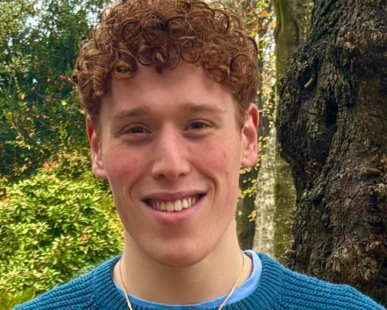
Prominent Jewish representatives are speaking out
Na’amod is our way of saying, hang on, you're not speaking for us.
That is why it felt important, particularly when the the massacre of innocent children in Gaza was unfolding, it felt important to reclaim my Jewish identity and say, no, no, I'm Jewish, and this is not okay. It's absolutely horrendous.
So how big is the local group, and what has it's done, and what's its relationship to the local Jewish community?
Well, I think we have around 20 active members now in Stroud and maybe in the Gloucestershire area.
I do not myself get involved with the Orthodox Jewish community in Gloucestershire, so I don't know a lot about how it perceives Na’amod, but certainly some of our members locally identify as Orthodox or are from an orthodox background.
Many of our members follow the progressive tradition — the liberal and reform traditions in Judaism that have now come together to form progressive Judaism — and many of them are more supportive of Na’amod aims.
Is it difficult for individual members to set themselves against the mainstream of Jewish opinion?
Unfortunately, it is. And I think every member I've talked to about this, has talked of family members that they cannot discuss this with. A common response is:
“Yes, we all have some relatives who are ardent Zionists and who just couldn't engage in a calm, friendly, open conversation about it, they would quickly jump onto a very partisan position.”
There are those who do view it as antisemitic, or as a kind of treason if you're Jewish and you speak out against what the Israeli government is doing. So yes, I think all of us do find some difficulties, and again, that's another good reason why people have to come together.
I'm Jewish, but I'm not that kind of Jewish. I'm a different kind of Jewish, you know. So it's important for us to support one another and listen to each other.
You've used the ‘Z’ word a few times. Is Na’amod an explicitly anti-Zionist group?
No, Na’amod doesn't identify as anti-Zionist. I mean, the words anti-Zionist and Zionist are open to a lot of different interpretations. Some might see anti-Zionism as those who want to see the destruction or the end of the State of Israel.
Na’amod wants to see equality.
I think that that's not explicitly anti Zionist, but it's also not pro Zionist.
So for example, as members of Na’amod, we support the BDS [Boycott, Divestment and Sanctions] campaign, the boycott of Israel, obviously, until things change.
Whatever forms of nonviolent pressure will help to effect a ceasefire, a change of regime and a change of approach in Israel, we would support.
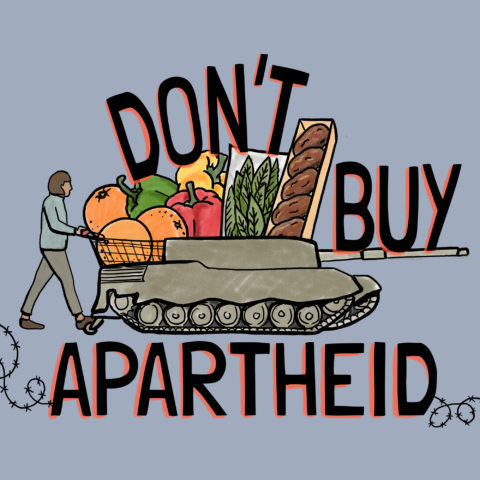
How influential do you think Na’amod is in the British Jewish community?
I think it will take a long time to appreciate the full impact of Na’amod. I think right now, it's been very important because it focuses on visibility.
It focuses on very large, very visible presences.
It has bright yellow banners.
It's been very visible at marches and demonstrations in support of Palestine and support of a ceasefire.
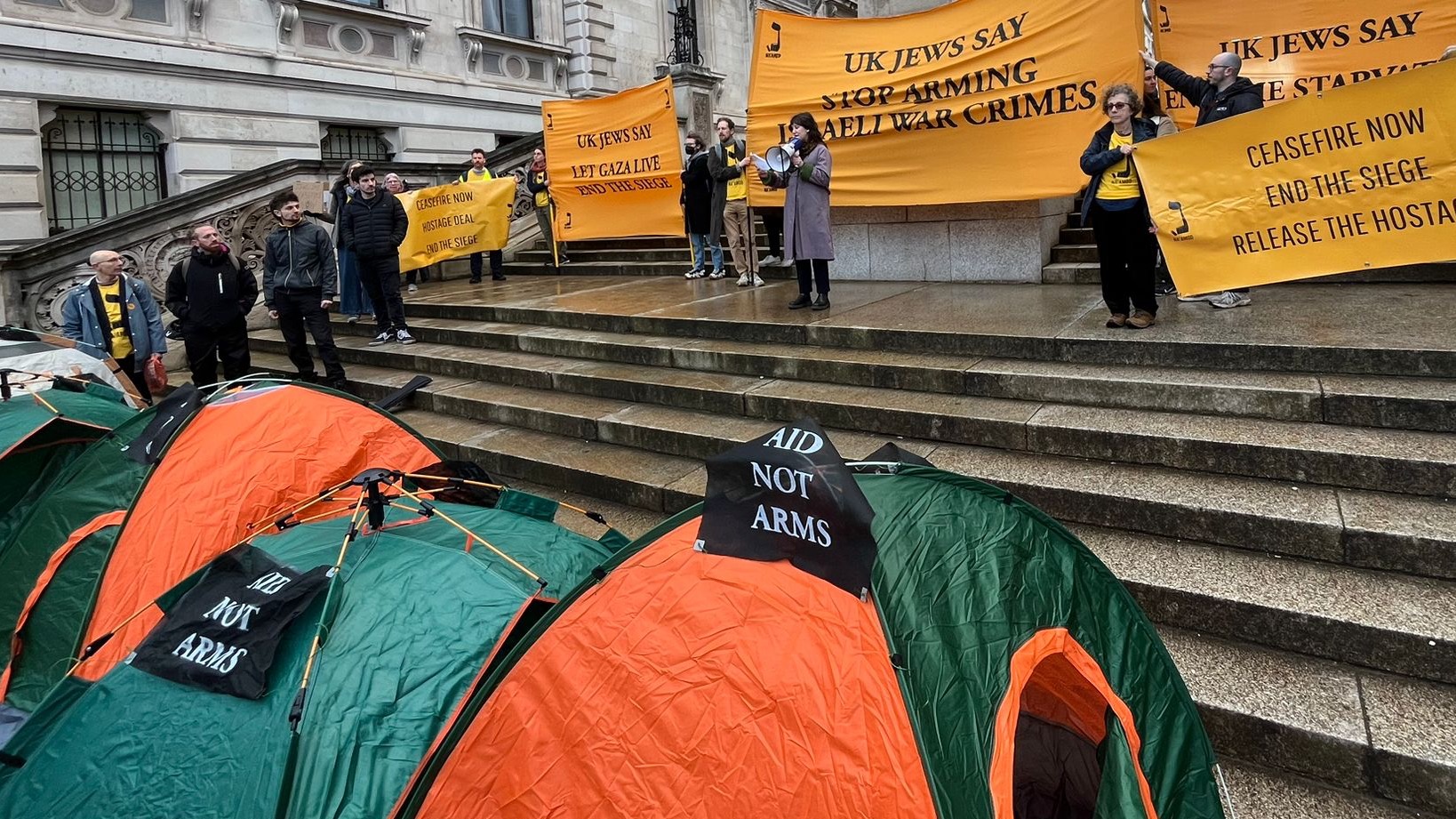
In demonstrations for Gaza, there's been a very visible Jewish bloc and I think that's really important for everybody on those marches to see in London — that there might be one or two people speaking up on the media and accusing the marchers of being antisemites and terrorists, and I think having many thousands of Jewish people visibly identifying themselves as being Jewish on those marches helps people to understand the strength of feeling we hold as Jews living in Britain today.
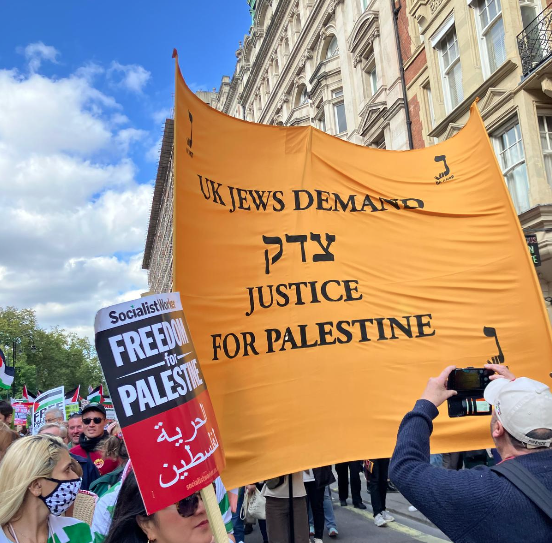
How different is Na’amod from the other Jewish groups that are critical of Israel or in solidarity with the Palestinians
There are some organisations which are working for a better understanding, better dialogue, humanitarian aid but who are not necessarily working for a real change in Israel's position with respect to all the occupied territories.
So you might say that they are liberal Zionist or progressive Zionists, and there are people who are just trenchantly opposed to the existence of a Jewish state at all, and would like to see Israel cease to exist.
So I think we would put ourselves firmly outside either of those camps.
Na’amod's view is that we need to work with everybody who is working for peace in Palestine, including Palestinian groups, Quakers, different political groups, people from other religious backgrounds and those of none.
Na’amod is really about recognising the importance of solidarity and a strong alliance with others, whilst focusing on changing attitudes and opinions within the Jewish community and ending that very passive or silent, tacit support for the State of Israel that seems to come from many in the Jewish community.
So we know what Na’amod is against but what's it for? Is it for a two state solution, a one state solution? Something else?
It isn't campaigning specifically for one particular solution. It campaigns for justice, for human rights, for equality, for an end to the illegal occupation of Palestinian land, and as far as I understand it, Na’amod hasn't got an entrenched position that there is one particular solution that's going to work, and as we've seen over the last 80 years, the nature of the problem and the potential solutions and the roadmap towards peace changes over time.
I wouldn't say that I see myself as a proponent of any specific solution but I believe that the dismantling of the illegal occupation, the killing and starvation of Palestinian people, needs to end.
There needs to be a new constitution. There needs to be a new settlement across Israel/Palestine. Now, whether that comes in the form of two separate states or a federated Israel/Palestine, I honestly don't know.
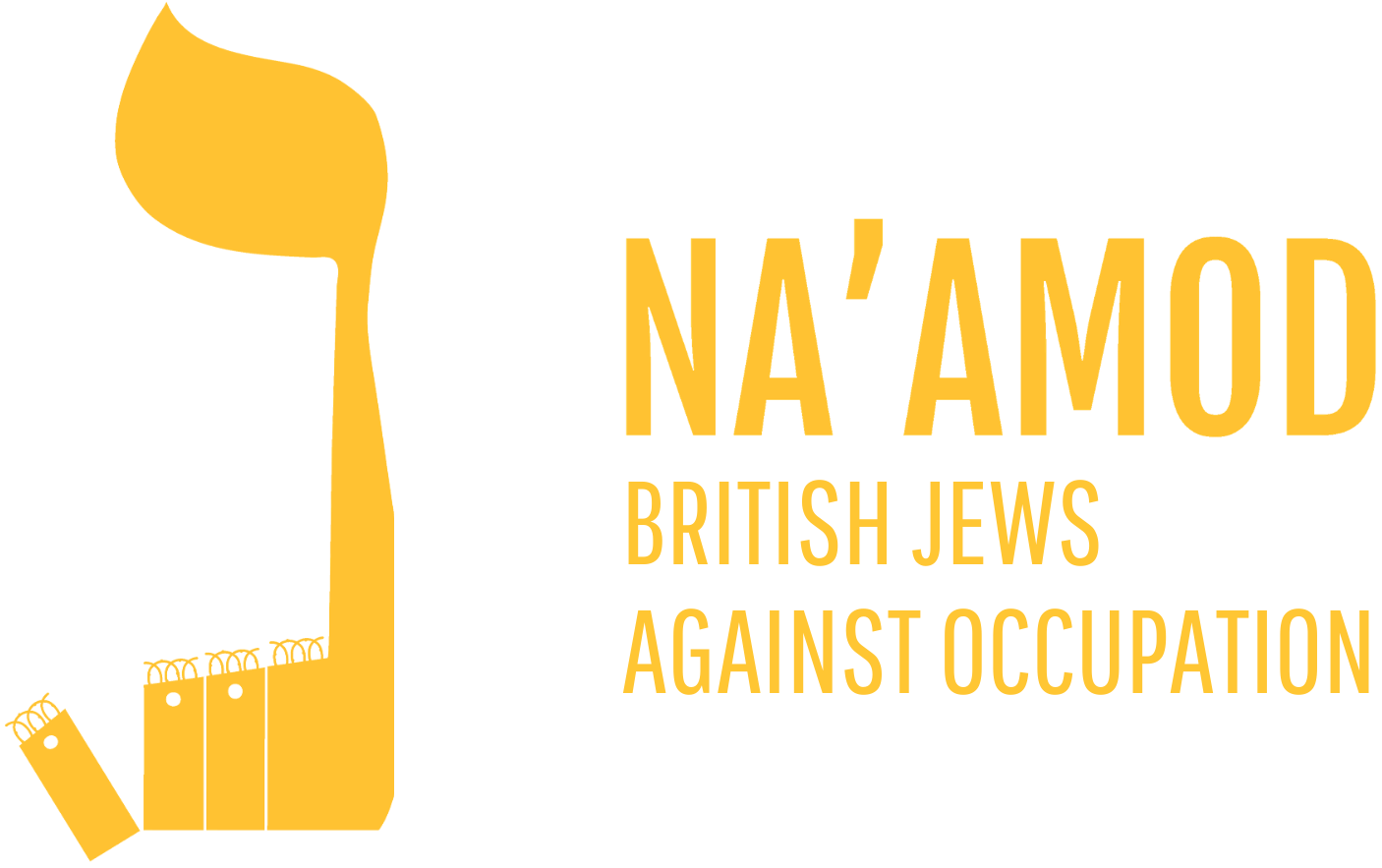
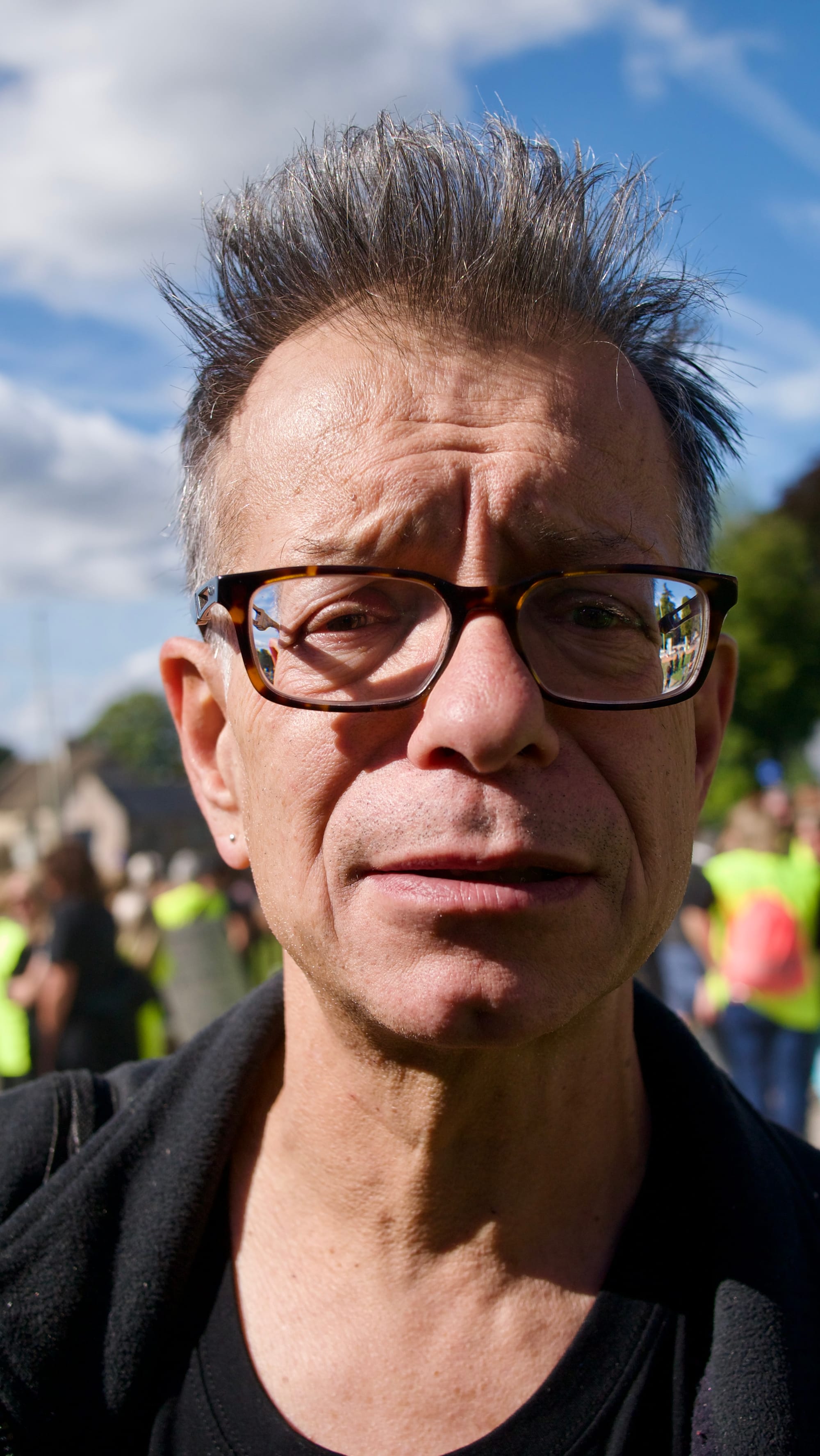
Jeremy Green is a local writer and activist.
His debut fiction novel One Shoe Tale can be ordered from here.


Amplify Stroud is supported by Dialect rural writers collective. Dialect offers mentorship, encouragement and self-study courses as well as publishing.
You can find out more at https://www.dialect.org.uk/


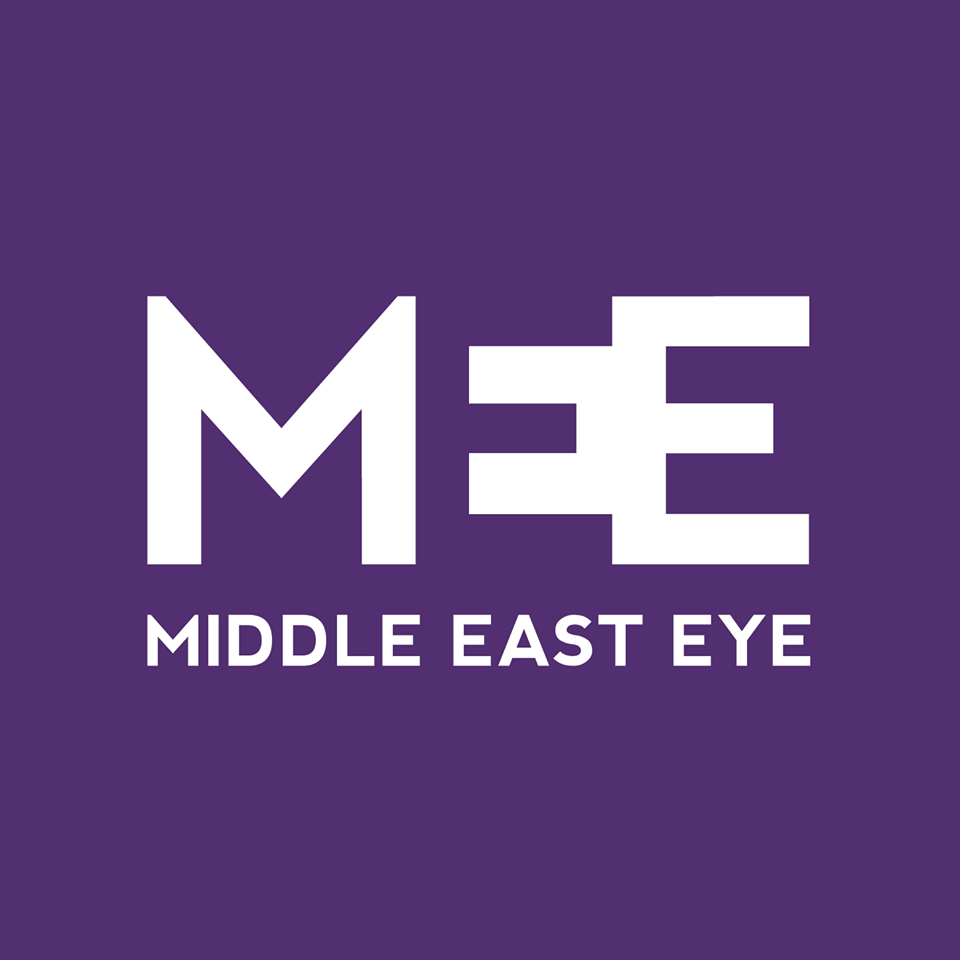
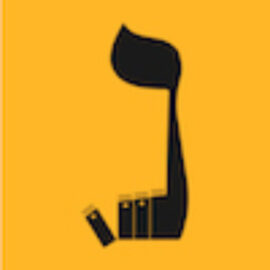

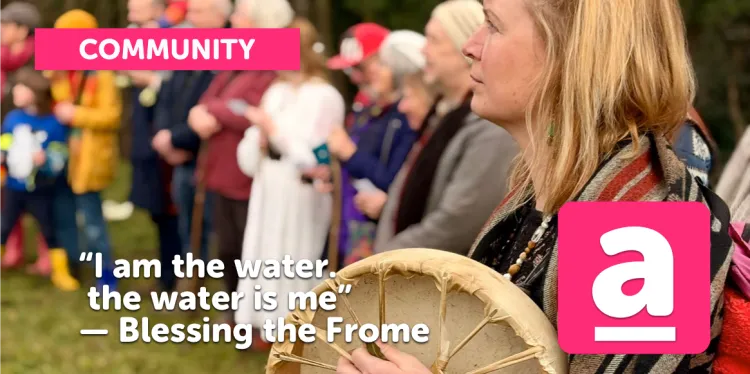
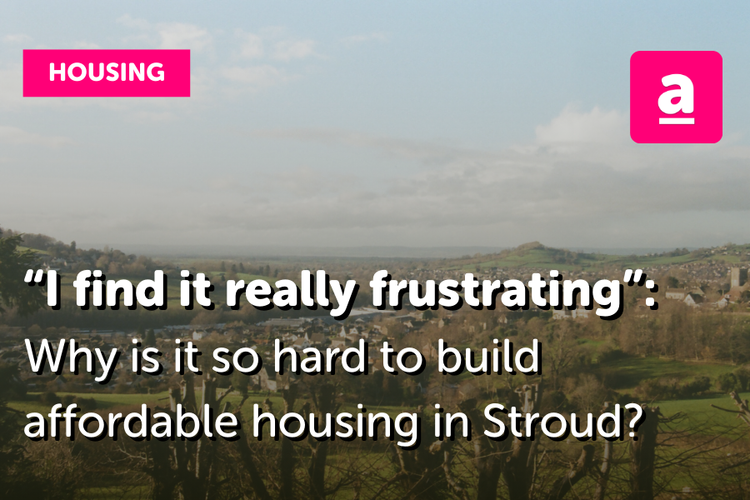
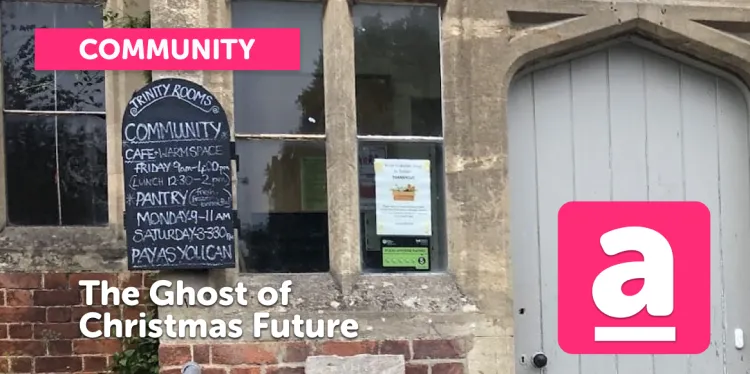
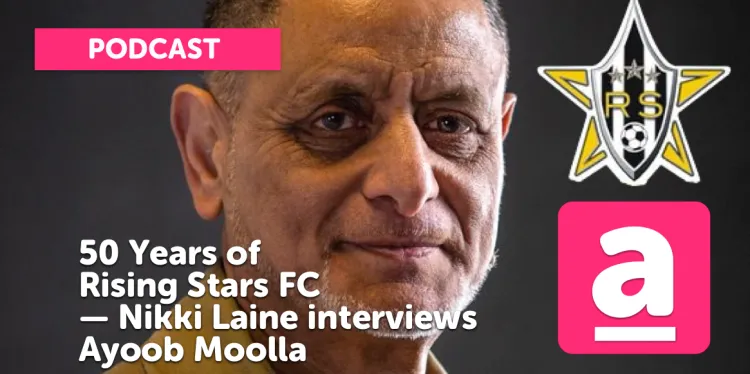
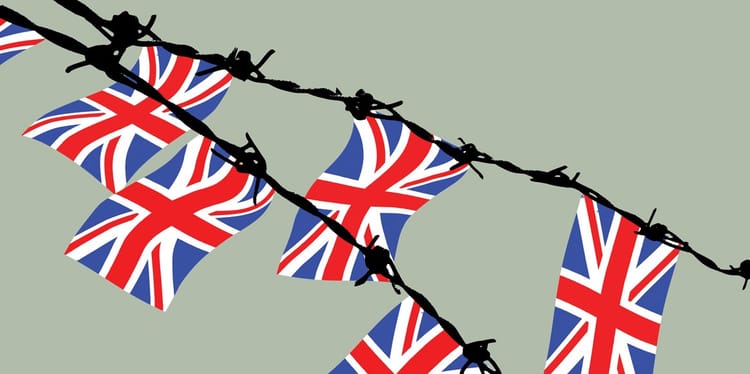
Member discussion